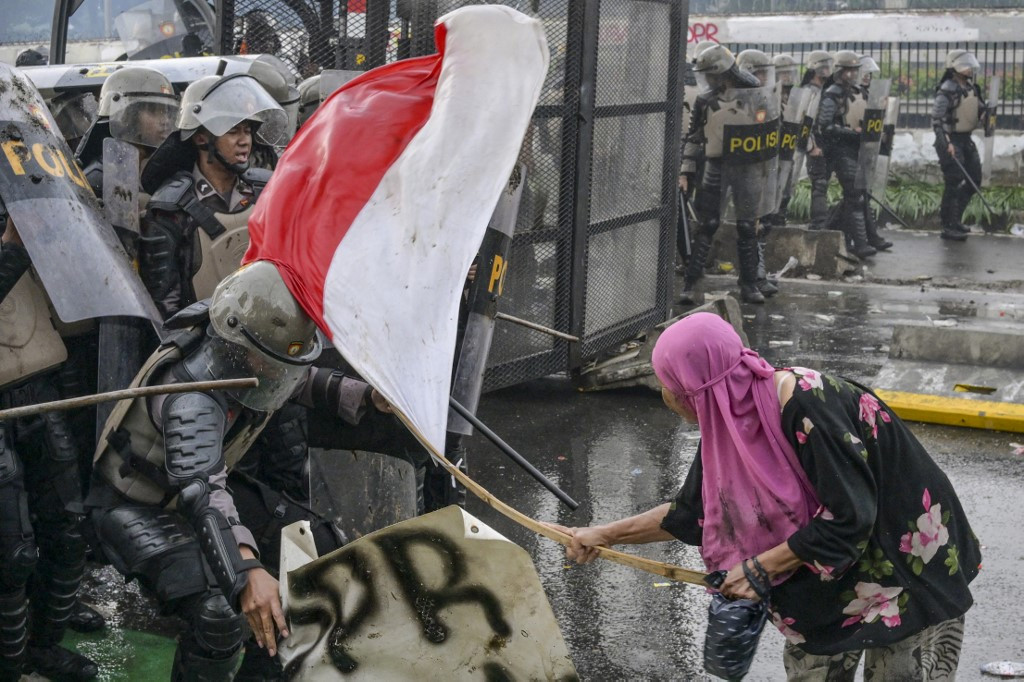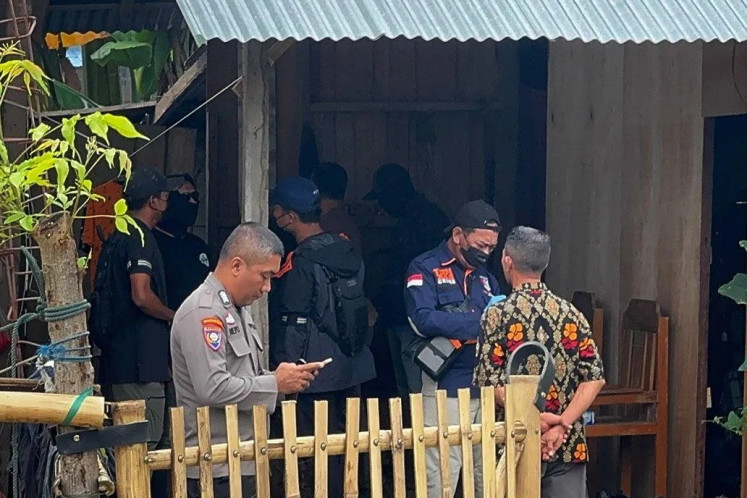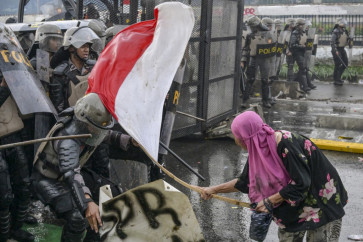Popular Reads
Top Results
Can't find what you're looking for?
View all search resultsPopular Reads
Top Results
Can't find what you're looking for?
View all search resultsPink is the new color of resistance
A woman who confronted a group of riot police last week has inadvertently elevated pink to the color of resistance, reminding us of the significant influence Indonesian women wield when they step outside their prescribed identity of mother-wife to embrace the role of activist ibu.
Change text size
Gift Premium Articles
to Anyone
A
middle-aged woman wearing a pink hijab was seen on the front line of a protest last week, holding the Red and White national flag as she confronted a group of riot police armed with shields. The rain did not stop her from voicing her concerns, shouting about the injustices and disappointment she felt toward the government. But above all, she was an ibu (mother, married woman).
The “ibu berjilbab pink” (woman in pink hijab) went viral overnight, and within days, her image became a symbol of resistance. The color of her hijab was used everywhere to signal support for the anti-government demonstrations that erupted last week and continue into their second week. On social media, pink became a mark of defiance.
But what does it mean when an ibu takes to the streets in protest?
As a matter of fact, many ibu-ibu (women) joined the recent protests. One woman mimicked washing clothes by hand while another held a broomstick to show that they were mostly unarmed, in a symbolic protest to question why the police needed to use weapons against the demonstrating public. Others used their voices to “instruct” the police in public speaking and show there were always nonviolent ways to communicate.
Their taking part in the protests reflects how these ibu-ibu felt compelled to take to the streets. On top of that, most of them are members of the working class, whose daily lives are directly affected by economic policies.
When ibu-ibu join a protest, they are breaking gender norms in Indonesia, which dictates that women should stay at home, take care of their households and be protected. In other words, they have been assigned the idealized dual role of a “mother” who must be responsible for her family and a “wife” who must remain dutiful: an ideology dubbed “ibuisme negara”, or state ibu-ism.
Once these ibu-ibu joined the protest, they had such a far-reaching impact that the mass protests have adopted pink as a symbol of resistance. Their influence extends beyond their idealized identity.



















